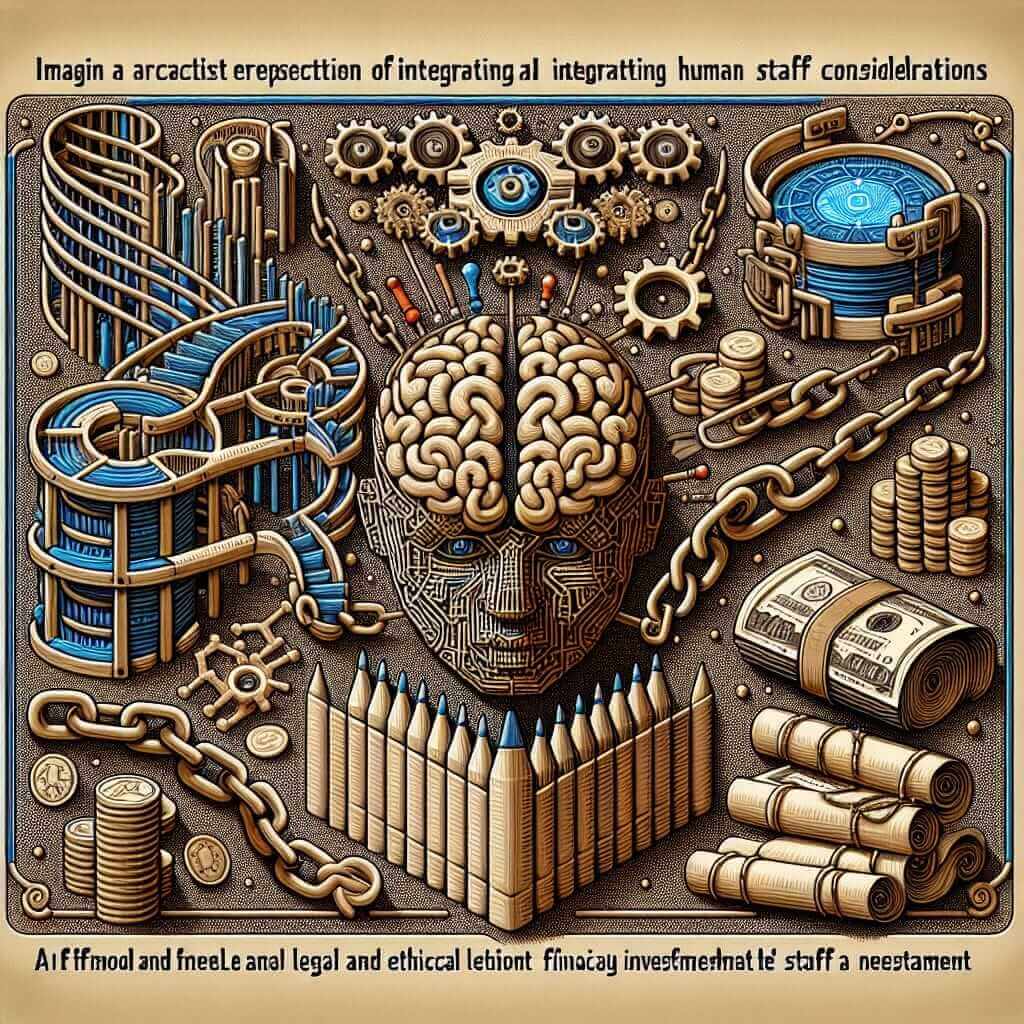The IELTS Reading section is a crucial part of the exam that evaluates a candidate’s ability to understand and interpret written English. One of the common trends in recent IELTS Reading exams is the inclusion of topics related to technology and its impact on society. One such topic is “What are the challenges of integrating AI into public services?” This topic has grown in prominence due to the ongoing digital transformation of public services worldwide.
Understanding these real-world applications not only prepares candidates for the IELTS Reading test but also provides them with knowledge that is timely and valuable. As AI becomes more pervasive, the probability of encountering such topics in the IELTS test increases.
Practice Reading Passage and Questions
Reading Passage
Text Level: Medium
Artificial Intelligence (AI) has the potential to revolutionize public services by enhancing efficiency, accuracy, and accessibility. However, integrating AI into public services comes with a myriad of challenges that need careful consideration.
Firstly, there is the issue of data privacy and security. Public services often handle sensitive personal information, and ensuring this data remains secure is paramount. AI systems require vast amounts of data to function optimally, raising concerns about how this data is gathered, stored, and used. Unauthorized access or misuse of data can lead to significant breaches of privacy, eroding public trust.
Secondly, there’s the challenge of ensuring fairness and avoiding biases. AI systems are designed based on existing data and algorithms, which can sometimes perpetuate existing biases within society. In public services, where fairness and equality are critical, biased AI systems can lead to discrimination and unequal treatment of individuals.
Furthermore, the implementation of AI requires substantial financial investment, which can be a hurdle for many public institutions. The costs encompass not only the initial development and acquisition of AI systems but also ongoing maintenance, updates, and training for staff.
Additionally, public sector staff may face resistance to change. Integrating AI necessitates a significant cultural shift and requires staff to adapt to new technologies and methods. There can be a lack of understanding and trust among employees about the benefits and functionality of AI, leading to resistance and low morale.
Lastly, there is the issue of legal and ethical considerations. The legal framework governing AI usage in public services is still in its nascent stages. Questions surrounding accountability, transparency, and ethical usage need comprehensive guidelines to ensure AI is implemented responsibly.
In conclusion, while AI offers numerous opportunities to improve public services, it is imperative to address these challenges through robust frameworks and strategies to ensure its ethical and effective integration.
Questions
-
Multiple Choice
What is one of the primary concerns regarding the handling of data in AI systems used in public services?
a) Cost of data storage
b) Speed of data processing
c) Data privacy and security
d) Compatibility with older systems -
True/False/Not Given
The passage states that all public services will inevitably integrate AI regardless of challenges. -
Identifying Writer’s Views/Claims (Yes/No/Not Given)
The writer believes that the implementation of AI in public services will eliminate all biases in the system. -
Matching Information
Match the challenge with its corresponding description:- Data privacy and security
- Financial investment
- Staff resistance
- Legal and ethical considerations
A. High initial and ongoing costs
B. Potential breaches of sensitive personal data
C. Necessity of new legal guidelines
D. Lack of trust and understanding among employees -
Summary Completion
Fill in the blanks using words from the passage.
“Integrating AI into public services requires addressing various challenges including data privacy, ensuring fairness, managing (a), overcoming staff (b), and handling legal and (c) considerations.”
Answer Key
-
Multiple Choice
c) Data privacy and security -
True/False/Not Given
False -
Identifying Writer’s Views/Claims (Yes/No/Not Given)
No -
Matching Information
- Data privacy and security – B
- Financial investment – A
- Staff resistance – D
- Legal and ethical considerations – C
-
Summary Completion
a) financial investment
b) resistance
c) ethical
Common Mistakes
- Misinterpreting Questions: A frequent error is misunderstanding the question type, which leads to incorrect answers. For example, confusing ‘True/False/Not Given’ with ‘Yes/No/Not Given.’
- Poor Time Management: Spending too much time on a single question can detract from time available for others.
- Ignoring Context Clues: Overlooking context clues in the passage can result in incorrect answers, especially in summary completion tasks.
Vocabulary
- Perpetuate (verb): /pərˈpeCHəˌwāt/ – Cause (something) to continue indefinitely.
- Substantial (adjective): /səbˈstan(t)SHəl/ – Of considerable importance, size, or worth.
- Erode (verb): /iˈrōd/ – Gradually wear away (soil, rock, or land).
Grammar Focus
- Passive Voice: Used for emphasizing the action rather than the actor. E.g., “Data is stored securely.”
- Relative Clauses: Used to add extra information about a noun. E.g., “AI systems, which are designed based on existing data, can perpetuate biases.”
Tips for High Reading Scores
- Practice Regularly: Regular practice with passages of varying difficulty will improve comprehension skills.
- Note Keywords: Always underline keywords in the questions and passages.
- Scan and Skim: Use scanning and skimming techniques to locate information quickly.
- Expand Vocabulary: Building a robust vocabulary aids in understanding complex texts.
- Familiarize with Question Types: Knowing different question formats helps in quickly identifying what is required.

By focusing on these strategies and understanding the thematic vocabulary and grammar structures used in current Reading passages, you’ll be well-prepared for this section of the IELTS exam.